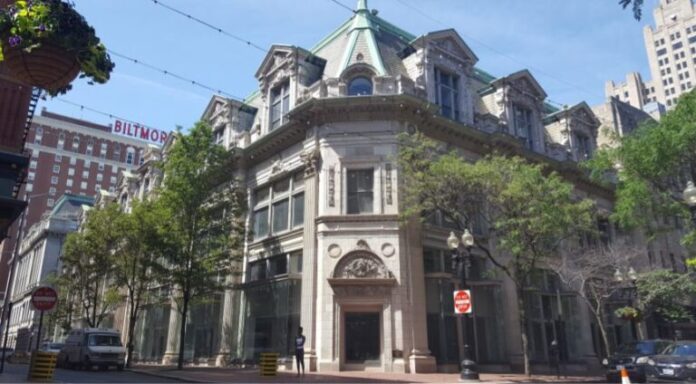
PROVIDENCE – Whether the city can legally set wage requirements for projects that receive property tax breaks has been called into question, prompting possible revisions to what labor organizations consider a key policy reform.
City Solicitor Samuel Budway at a March 30 public hearing on the proposed Tax Stabilization Investment Act raised concerns that requiring developers to pay prevailing wages to contractors who build the projects as well as wage standards for permanent, post-construction jobs would subject the city to “preemption challenges” under the National Labor Relations Act.
These provisions have been heralded by labor groups as a crucial part of the reform to city-authorized tax breaks on development projects. The City Council is currently considering amendments to the bill based on Budway’s concerns, according to Ben Smith, press secretary for Mayor Jorge O. Elorza.
Details on exactly what those amendments are or what that means for wage requirement provisions is unclear. Council President Sabina A. Matos, who introduced the legislation last fall, did not return inquiries for comment.
Michael F. Sabitoni, president of the Rhode Island Building and Construction Trades Council which helped draft the proposed reform policy, declined to comment on whether he would still support the bill if the wage provisions were struck.
“We’re not at the point to consider it,” he said, adding that he was fully confident in the legal opinion Sabitoni solicited from D.C. law firm O’Donoghue & O’Donoghue LLP.
The memo, which was submitted to the City Council after the public hearing, refuted Budway’s claims, stating that labor and wage standards could not be preempted by the National Labor Relations Act which pertains to unions and collective bargaining.
Gerard Waites, a partner at the firm who wrote the memo, in an interview said legal precedent and common sense corroborate his opinion. He pointed out that multiple state governments – including Rhode Island – and local municipalities have these kinds of wage requirements on their books already, and have not been hit with legal challenges.
Asked if he thought it was necessary to strike the provision from the proposed ordinance, Waites said no.
“I don’t see any reason for it,” Waites said. “If I was a lawyer representing contractors who wanted to challenge this, I would not bring this claim.”
Andrew B. Prescott, managing partner for the Providence office of the national law firm Nixon Peabody LLP, agreed with Waites’ analysis that there was “nothing problematic” about the ordinance from a federal labor law standpoint.
The city declined to offer further comment on Budway’s legal concerns.
While Waites chalked up Budway’s concerns to confusion or misapplication of federal law, Justin Kelley, who represents the International Union of Painters and Allied Trades, offered a different take on the motive.
“It’s disingenuous and political,” he said, adding that the city has “very clearly been influenced by a lot of lobbying by business interests that benefit from the current situation of exploiting people.”
The city declined to respond to Kelley’s comments.
Several developers have expressed concern with the proposed ordinance, saying it adds costs and burdens to already complex and costly projects. The wage requirement is one of a host changes or overhauls the policy lays out; other significant changes include enforcement mechanisms for meeting city requirements to contract with minority and women-business enterprises and giving the City Council authority to approve every tax break, instead of limiting their purview in smaller dollar-value projects.
Former Providence Mayor Joseph R. Paolino Jr., a prominent downtown property owner who has received TSAs on several of his projects, warned in the public hearing that the reform could stifle economic development at a time when the city needs it most.
A recent report by the city showed that the 70 tax stabilization agreements on the books are projected to bring in $6 million in additional revenue in fiscal 2021, doubling the city’s total anticipated property tax income from those properties to $12.3 million. Over the next 20 years, the phased-in taxes on these projects are expected to generate an extra $450.6 million, according to the report.
“To put further restrictions in there, I think you’re going to see a lot of developers and property owners just throw up their hands and say this is too much for me,” Paolino said.
But proponents for the ordinance have said there should be more oversight and worker protections for projects that receive tax breaks.
“When there is public subsidy, there must be public benefit,” Kelley said in the hearing. “Funding economic development at the expense of working people is not sound public policy.”
Nancy Lavin is a PBN staff writer. You may reach her at Lavin@PBN.com.










